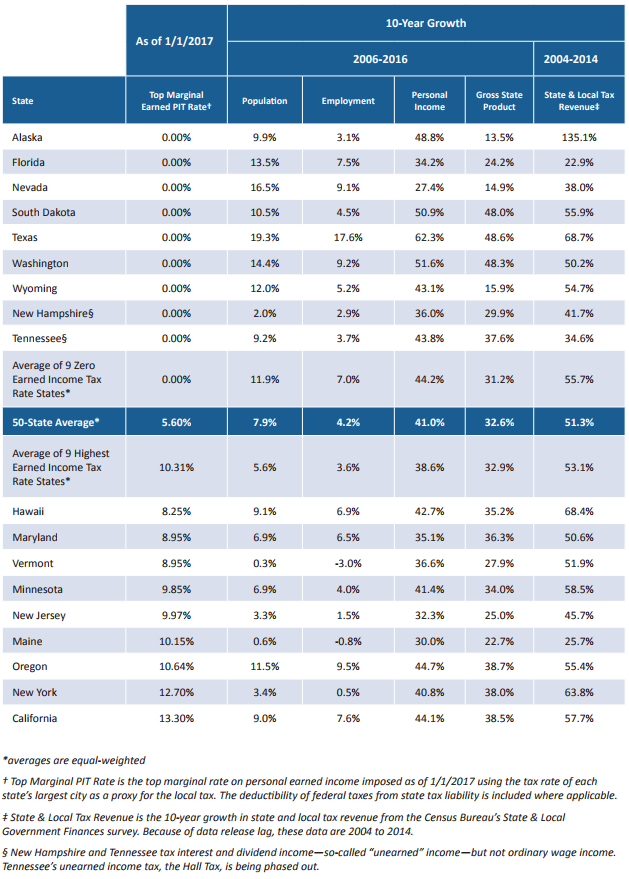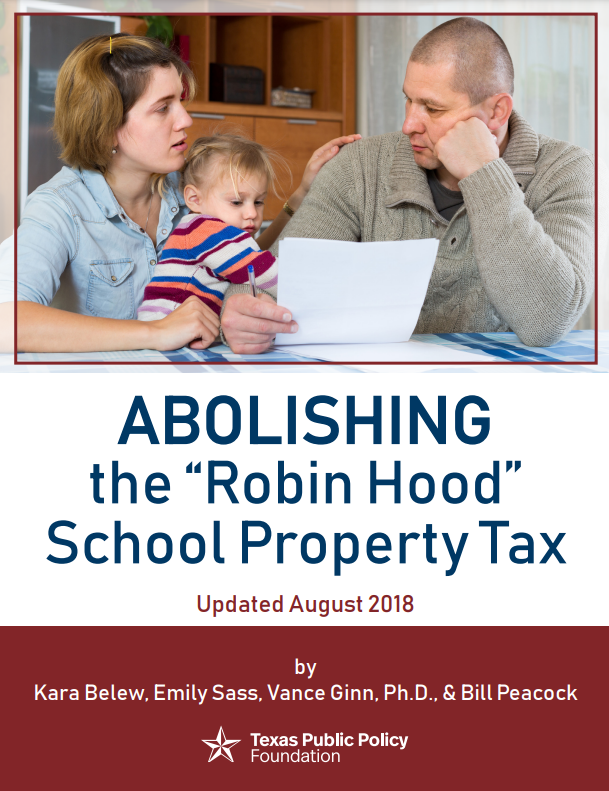Interview on One America News Network with Liz Wheeler on Economy, Trump Tax Cuts, and Tariffs6/29/2018 Also watch it here: www.texaspolicy.com/blog/detail/americans-keep-winning-six-months-after-the-trump-tax-cuts. For more information, read this blog post: Americans Keep Winning Six Months After Trump Tax Cuts.
0 Comments
Please sign-up for my channel Vance Ginn Economics to watch this full episode and more.
In today's episode, I discuss how stocks look to end Q2 2018 up after a rocky quarter, projected economic growth rates continue to go up, price inflation reaches a 6-year high, and economics is the study of how people act and interact to satisfy their desires within institutions given scarce resources. Enjoy! The result of taxing something is that you will get less of it. That's simple, correct? But the details of how to best collect taxpayer dollars to fund limited roles for government gets complicated. I try to break this down simply at the video above.
According to the Texas Comptroller, property taxes and sales taxes are both regressive. Any time you have a flat tax rate, higher income people will pay a lower share of their income on taxes than lower income people. But the costs of property taxes are substantial, with businesses and individuals each paying about half for school M&O property taxes. Sales taxes, on the other hand, allow people the freedom to decide how to spend their money, don not have to tax real estate (capital formation and accumulation--keys to wealth of nations), and are transparent. Individuals pay about 60% of sales taxes collected while businesses submit about 40%, but we know that businesses don't ultimately pay taxes because they just pass those costs along to consumers (us) in the form of higher prices, lower wages, and fewer jobs available over time. As noted in Episode 8, I have long supported the elimination of property taxes in Texas. There are multiple ways to do so by possibly swapping them (sales tax rates are lower now because of expanded economic growth since these rates were calculated) with a reformed sales tax and/or buying them down over time. The key is to limit government spending so that the burden of government can be reduced. We know that sin taxes (e.g. carbon tax or cigarette tax) or tariffs are poor forms of taxation. Income taxes are also a terrible form of taxation. Check out the table below that provides information for the 9 states without a personal income tax and the 9 states with the highest personal income tax rates. Those states without a personal income tax blow the others out of the water regarding multiple economic indicators. Of course, the key is limiting spending. Let's move to a tax system with just a sales tax for more economic prosperity. Property taxes continue to skyrocket in Texas. I have long supported the elimination of property taxes in Texas. Fortunately, the Texas Public Policy Foundation continues to publish valuable ways to achieve this by swapping them (sales tax rates are lower now because of expanded economic growth since these rates were calculated) with a reformed sales tax and/or buying them down over time. The key is to limit government spending so that the burden of government can be reduced. I had the privilege of teaching 67 top-notch students of the MOWW Youth Leadership Conference about the labor market and the costs of the minimum wage. You can watch my presentation of the minimum wage game from a previous year here. It's always a pleasure to teach the bright young minds of tomorrow about something as important as the minimum wage. I talk about the increased trade uncertainty by the Trump administration influencing the stock market today, TPPF's daily newsletter called The Cannon (sign up here), and the vastly different costs of living in each state leading to different state poverty rates and the question of whether there should be a federal minimum wage (Answer: NO). Stay tuned for the next episode! Congress and state legislatures shouldn't shackle prosperity with a carbon tax because it's based on flawed assumptions and results in costly economic and environmental effects. You can read my work on this at TPPF research paper here, TribTalk op-ed with Bob Murphy here, and Real Clear Energy op-ed with Jonathan Williams here. Stay tuned for the next episode! I discuss the markets that tell us something about domestic and global economies and how spending must be restrained at the federal and state levels, like cutting corporate welfare, for increased prosperity. Thanks for watching! In this episode, I talk about the concept of opportunity costs and how we must sacrifice things to satisfy our desires. We work to consume, but an artificial minimum wage set by government distorts the labor market and hurts low-skilled workers the most. Find the article on DC here and the average tipped wages from BLS here. In each episode, I will discuss how we act to satisfy our desires given scarce resources around us withing a number of institutions. This episode is on how trade between people, whether domestically or abroad, supports prosperity and how barriers to trade, such as tariffs, reduce prosperity. Review my paper on the topic here. You can find each of these at my YouTube channel: Vance Ginn Economics. Please subscribe. In each episode, I will discuss how we act to satisfy our desires given scarce resources around us withing a number of institutions. This episode is on the Texas labor market and how it compares with other states. The Texas model of limited government works. Review my presentation on the topic here. By reducing state and local government spending growth, Texans can eliminate the Robin Hood school property tax and cut overall property taxes almost in half. Key Points:
Originally published by Texas Public Policy Foundation with co-authors Kara Belew, Bill Peacock, and Emily Sass. |
Vance Ginn, Ph.D.
|



 RSS Feed
RSS Feed